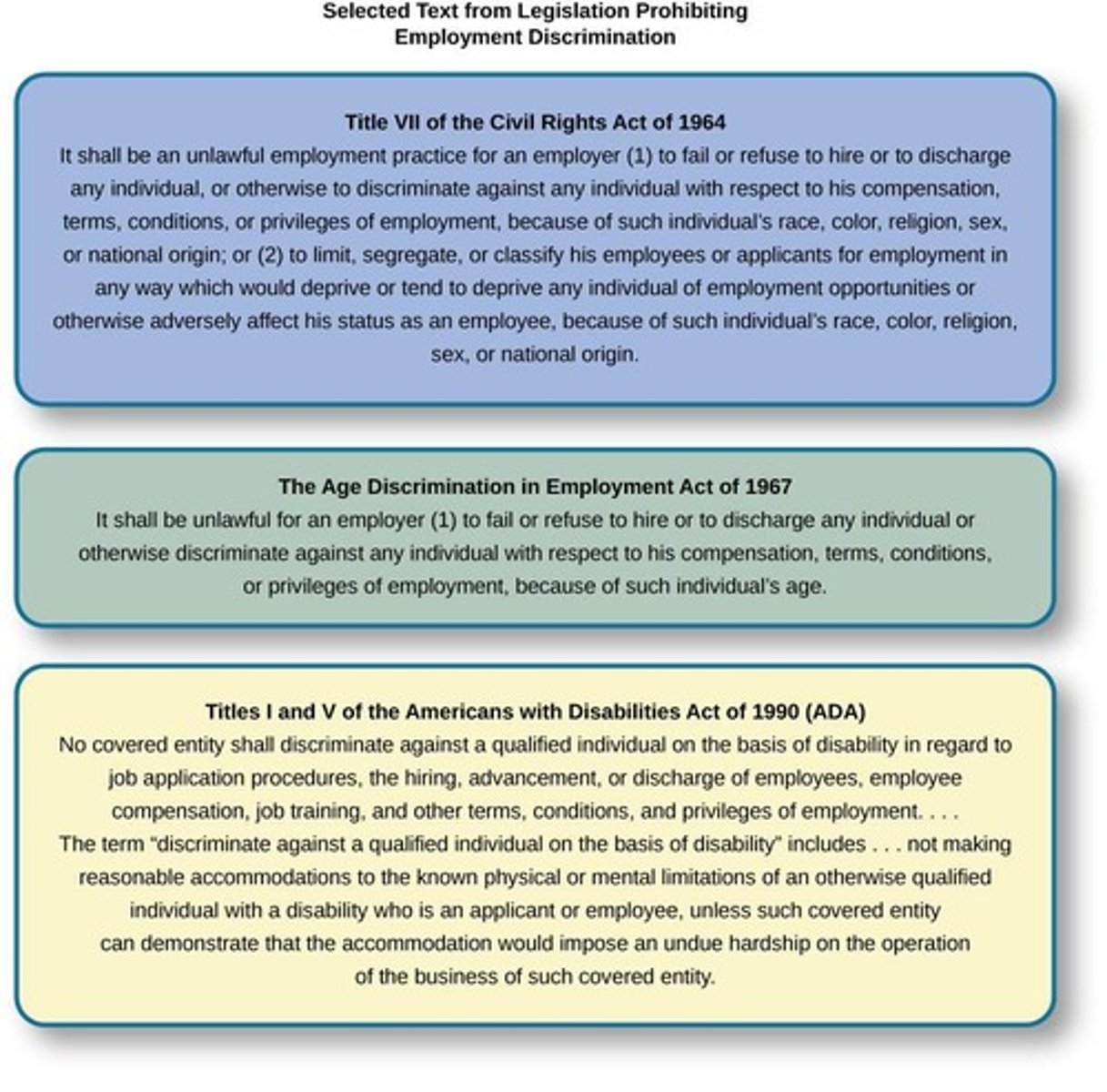Chapter 13: Industrial-Organizational Psychology Overview
1/26
There's no tags or description
Looks like no tags are added yet.
Name | Mastery | Learn | Test | Matching | Spaced |
|---|
No study sessions yet.
27 Terms
Bureau of Labor Statistics
Reports average work hours for U.S. workers.
I-O Psychology
Studies behavior's impact on work and vice versa.
Organizational Psychology
Examines worker interactions and productivity effects.
Industrial Psychology
Focuses on job and applicant characteristic matching.
Human Factors Psychology
Optimizes worker-tool interaction for productivity and safety.
Ergonomic
Design aimed at efficiency and comfort in work.
Occupational Psychology
Studies workplace-related stress and health issues.
Hawthorne Effect
Increased performance due to attention from observers.
Job Analysis
Describes tasks, responsibilities, and qualifications for jobs.
Task-oriented Analysis
Details specific tasks required for a job.
Worker-oriented Analysis
Describes worker characteristics needed for job success.
Job Specification
Identifies required knowledge, skills, and abilities (KSAs).
Unstructured Interview
Varied questions for different job candidates.
Structured Interview
Standardized questions for all job candidates.
Performance Appraisals
Evaluates employee success in job duties.
360-degree Feedback Appraisal
Combines ratings from multiple perspectives on performance.
Discrimination in Hiring
Illegal to select candidates based on group membership.
Equal Employment Opportunity Commission
Enforces laws against job discrimination in the U.S.
Equal Pay Act (1963)
Mandates equal pay for equal work regardless of gender.
Title VII of the Civil Rights Act (1964)
Prohibits employment discrimination based on race, color, religion.

Job Satisfaction
Degree of enjoyment individuals derive from their job.
Management Behavior
Combines scientific management with human relations theories.
Transactional Leadership
Focuses on supervision through rewards and punishments.
Transformational Leadership
Inspires and motivates through charisma and vision.
Cognitive Engineering
Studies human-software interactions in automated systems.
Task Analysis
Breaks down elements of a task for better understanding.
Cognitive Task Analysis
Analyzes cognitive elements involved in task performance.